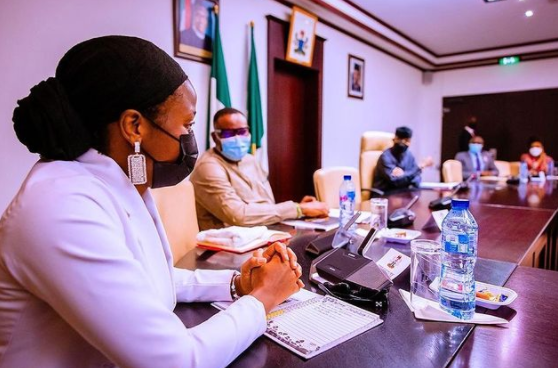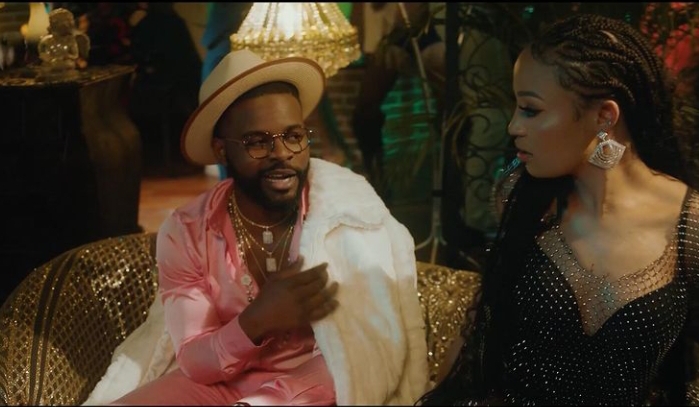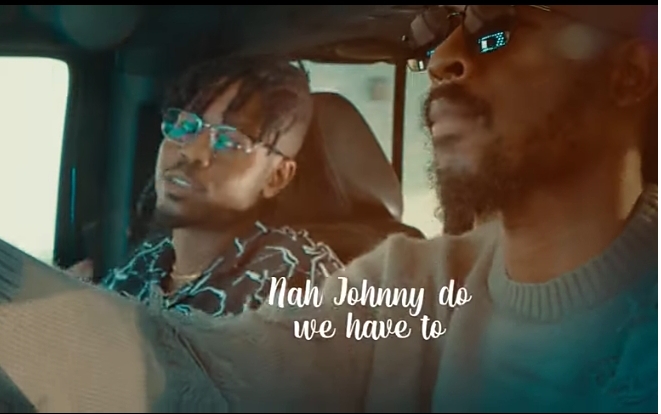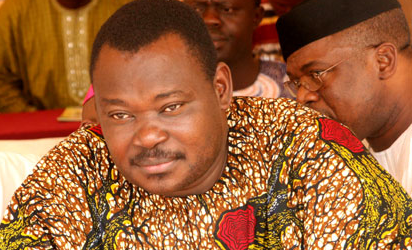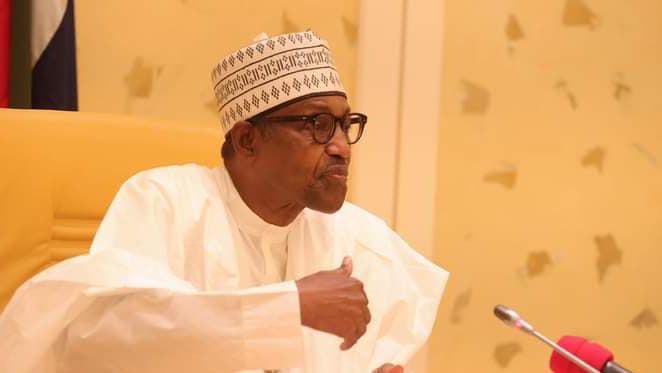BY OLUSOLA OWONIKOKO
With over 60 percent of its population being youths, Africa is the youngest continent on the globe. By 2030, the youth population will rise by 42 percent, according to the United Nations Department of Economic and Social Affairs.
This demography, when spiced with the right human capital development for long enough, will be a huge advantage for the continent. But when left unharnessed, like in most African States, a youthful population could spell disaster.
Youths are the backbone of any nation. Their physical and intellectual energies matter to the growth of a developing nation such as Nigeria. One way the government can leverage the manifold talents in its youth is through meaningful engagement and dialogue.
For that to happen, the youth themselves must be willing to engage with the government. Of course, this is a question of trust. First, the government must have shown itself trustworthy in several respects and the youth must have proven themselves capable through the exploits they have achieved independent of direct government support.
Advertisement
As is the case with such engagements, representatives are required. Amongst the youths, there have to be a few voices that speak the mind of the many. Where none is available, it becomes natural for the most vocal to shoulder the burden of the multitude.
This was the case with popular comedienne, Maryam Apaokagi, who joined a delegation of skit practitioners under the leadership of Bimbo Daramola to visit Vice-President Yemi Osinbajo early last month.
According to Apaokagi, she used the opportunity to raise relevant issues in Nigeria, specifically the current Twitter ban and police brutality against youths. For her, the visit was a golden opportunity to discuss these issues that have been chaffing the potential of Nigerian youths.
Advertisement
However, history has consistently proven that the hardest people to please are humans. This fact became more glaring when Apaokagi’s actions attracted harsh criticism and insults from the very youths she claimed to represent.
Members of the delegation were tagged gold diggers and hypocrites fronting their personal interests. This idea was further cemented by the absence of popular comedian, Debo Adebayo, popularly known as Mr Macaroni who was considered noble for not attending.
Beyond pictures, Nigerians demanded a video clip of the meeting to hear details of the conversations; a material that Apaokagi, understandably, could not provide. Any previous visitor to the State House knows that mobile gadgets are left at the security outpost before entering. Therefore, the only custodians of such a clip would be the Vice President’s media team. The Comedienne responded that she would have turned down the invitation if she had prior knowledge that their phones would be taken from them before entering the Villa.
Her failure to provide the clip spurred allegations that the meeting was purely for personal reasons, not advocacy. An activist, Oduala Rinu, propagated this narrative. She tweeted, “The issue here is not about the visit, you asked for audience to see Osinbajo to promote your Skit Industry Awards. You guys are now making it look like you specifically went to talk on behalf of the youths.”
Advertisement
The avalanche of social media criticism left Apaokagi apologizing for failing to prove the subject of her discussions with the Vice President. Conversely, Aisha Yesufu, a major activist during the 2020 #EndSars protest thought the comedienne’s apologies were unnecessary. Yesufu tweeted, “There are different ways of achieving something. It is never one way and it is okay whatever way one chooses. Intentions are what count and you know yours!”
Yesufu believed that her intention is the defining factor. Therefore, people’s opinions remained inconsequential in this case. She went on to say that “What people think or say must never matter. What we feel alone with our thoughts is what should matter the most.” She said this to rid Apaokagi of the guilt.
Overall, I think the comedienne was victimised and is still being considered pro-government until the requested clip vindicates her.
But government and youths were never meant to be enemies. Except when the actors in government have made it seem so. In fact, the very existence of a dichotomy between the government and the youth is a problem.
Advertisement
The Problem
My point here is, why crucify a youth for trying to engage with the government? The reasons are obvious. Since the Lekki shootings of October 20, 2020, Nigerian youths officially lost the last strand of trust they had in the government.
Worse, the ensuing months of state denial and last month’s scathing rejection of the Lagos State Judicial Panel of Inquiry report by the Information Minister, Lai Mohammed, further deepened the distrust between the Buhari regime and the youths. As Brian Tracy said, “The glue that holds all relationships together—including the relationship between the leader and the led—is trust, and trust is based on integrity.”
Advertisement
Speaking of integrity, Nigerian leaders have done too little to earn the trust of the led. For instance, the blatant denial of the Lekki shootings despite overwhelming evidence from reputable forensic experts is a clear case of disregard. Nigerian youths will never come to terms with a government that condemns the report of a panel it set up simply because the outcomes were not in its favour.
One can say that the anger towards the skit makers visiting the VP is understandable and is a residue of the #EndSars protests. Apaokagi’s story is a litmus test revealing the wide trust gap of lack of trust and disconnectedness existing between the leaders and its citizens. However, irrespective of previous disappointments, there has to be a convergence between the youth and the government.
Advertisement
Why youths must engage with government
Active participation of youth with the government is essential for creativity, innovation and development. When offered the right runway length to showcase their prowess, youths can be initiators and propagators of massive change. Their active participation in political affairs will resolve so many national challenges.
The flipside to this is, there are too few systems that encourage youth engagement in Nigeria and Africa. Be that as it may, the youth cannot take the back seat and accept whatever is dished out to them.
Advertisement
For any meaningful change to happen, things must begin from somewhere. The way forward, I believe, is a healthy rapport between the leaders and the led, especially the youths. So, what do youths and the government stand to gain from engaging meaningfully and sustainably?
Understanding Politics & Governance
On the part of youths, there is a heightened awareness of the nature of governance. Through active engagement with the government, youths can better understand how policies are formulated, drafted and implemented. Proper understanding of government policies and their significance to national development comes largely through active participation. This way, they are better equipped to demand transparency and accountability from government actors.
On the part of the government, active engagement with the youth will lead to youth-centred policies that are formulated and implemented by the very people it benefits.
When government officials who are far up in the 70s formulate youth policies, we can be sure that such policies will be riddled with gaps that do not represent the aspirations of the 21st-century youth. Therefore, by engaging with young people, governments have a better chance to implement just-in-time, relevant policies that address real challenges; not perceived ones.
Civic Engagement
Ultimately, youth’s engagement with the government will birth civic initiatives; further widening the frontiers of collaborations. Youths who are engaged in governance can educate their colleagues on how best to relate with the government before, during and after elections.
It is a fact that the beginning of real change happens at the grassroots; as seen in the 2020 US Presidential elections. Politically enlightened youths can spur their counterparts to participate through voting, vote monitoring, etc.
But political engagement is just one of many frontiers. In Africa, there’s a lot of grounds to cover in health & sanitation, crime & drug abuse sensitization, community service, persons living with disabilities as well as education.
For me, my work at Project Enable has put me at the frontlines of advocacy for persons with disabilities for the better part of a decade. This has necessitated engagement with government ministries, departments and agencies. The truth is, without such collaboration, my team and I wouldn’t have come this far.
Bridging Generational Gap
This is a corollary to #1. I think the dissatisfaction many youths have with their leaders is the lack of understanding about what they really want. Sharing wheelbarrows to empower a population burdened by drug abuse is like using duct tape to remedy cracks in a building.
This is because our leaders are lightyears away from the realities of the average youth. Sadly, even those they appoint to do the groundwork hardly understand the youths they are meant to serve. Therefore the effects of the generational gap between African leaders and the youth is deepening by the day. In most government circles, there are no youths to stand as a mouthpiece for their fellows. Where such exists, it is mostly ineffective. National development requires the exchange of fresh ideas between the new and older generation. Even this is merely a temporal remedy.
The ideal situation is to have young, able-bodied men and women in positions of power who have the benefit of both the old and new generations. But where this isn’t the reality—as in many African states—youths must stand their ground; insisting on their rights or even the removal of an authoritarian leader through protests, boycotts and other nonviolent instruments. Until youths actively participate in political matters and normalise structured communication with the government, the real changes we seek will remain elusive.
Dr Myles Munroe (of blessed memory) once said that the root cause of every challenge the world faces today is a fallout in relationships. It could be between a couple, parent vs children, school management vs students, government vs its people, government vs youths, employer vs employees, etc. Munroe said the most sustainable way to avoid such fallouts is through active engagement.
When accused of neglecting its youth, most governments display scorecards of numbers and so-called empowerment programs. Digits mean nothing when they don’t translate to real change for real people. On the part of youths, we must continue to seek better ways to engage with the government as Apaokagi did. However, when a government consistently proves itself to be untrustworthy, we must tread with caution.
Owonikoko is a serial entrepreneur and international development expert who has worked on projects by USAID, DfID, World Bank/IFC. He tweets @SolaOwonikoko.
Add a comment
